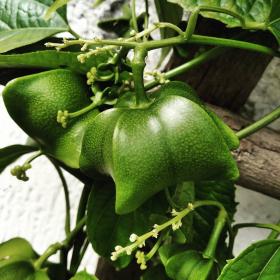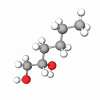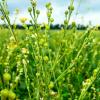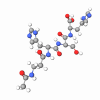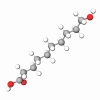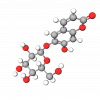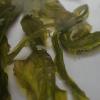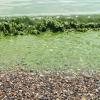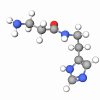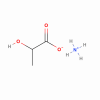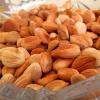Plukenetia Volubilis (Sacha Inchi) is a perennial plant with seeds known as Inca nut. To maintain all its natural components without degradation, Plukenetia Volubilis seed oil is extracted entirely from Inca peanuts only using the cold pressure method. It contains a very important and considerable amount of polyunsaturated fatty acids (PUFAs).
Sacha Inchi oil is an organic ingredient, a perfect source of omega acids for skincare formulations. It contains one of the highest polyunsaturated fatty acids among all oily seeds used for human consumption and becomes a special active ingredient for revitalizing and rejuvenating the skin.
Plukenetia Volubilis seed oil contains an average of 48% alpha-linolenic acid (Omega 3) content, an average of 37% linoleic acid (Omega 6) content, and contains approximately 8% oleic acid ( Omega 9). In addition, Sacha Inchi oil has a high concentration of tocopherols, such as gamma- and delta-tocopherol, a content rarely seen in other seeds.
Plukenetia Volubilis seed oil helps to prevent DNA damage in two ways: first, by reinforcing the lipids of cell membranes, mainly PUFA. Secondly, its composition rich in natural tocopherols and antioxidants will help reduce the mechanisms of free radical formation. Sacha Inchi oil is a perfect moisturizing and anti-aging ingredient for sensitive or dry skin.What are the benefits of Sacha Inchi oil?
Benefits of Plukenetia Volubilis (Sacha Inchi) seed oil for skin include:
- Reductes of transdermal water loss
- Normalizes skin's barrier functions
- Maintains keratinization
- It acts as a potent antioxidant, protecting skin cells.
What is the role of PUFAs in skin barrier function?
The skin has the stratum corneum as a protective barrier, which requires three main types of lipids to perform its function: ceramides, cholesterol, and polyunsaturated fatty acids (PUFAs). A lack of PUFAs in the skin can cause some unwanted effects, such as:
- Dry skin, with flaking and wounds;
- Loss of the skin's natural moisture;
- Irregular keratinization process;
- Tendency for eczema and itching.
